Our Experts

Klaus Michael Hahn, Ph.D.
Dr. Hahn's laboratory has focused on developing and applying new technologies to visualize the dynamics of signaling in living cells and animals, with emphasis on motility and GTPase signaling. We have pioneered approaches to study protein conformational changes in vivo, including different biosensor designs, control of protein activity in vivo with light, image analysis methods for multiplexed imaging, and methods to image endogenous protein activity in vivo. Recently we are focused on engineering allosteric activation to manipulate kinase activity in animals. Our laboratory aims to apply these novel technologies to proteins implicated in autism and Angelman syndrome to define and clarify their roles in neurodevelopmental disorders.

Ji Eun Han
Ji Eun Han is a Research Technician in the laboratory of Dr. Benjamin Philpot. She received a Master’s degree from Hanyang University, South Korea with a major in Neurobiology and Neuroanatomy. Before joining Dr. Benjamin Philpot’s lab she worked with Dr. Juli Valtschanoff, Dept. of Cell & Development Biology, UNC-CH. She is currently assisting in projects to test the efficacy of Angelman syndrome therapeutics in vitro and in vivo.

Hsien-Sung Huang, Ph.D.
Dr. Hsien-Sung Huang is a postdoctoral fellow in the laboratory of Dr. Benjamin Philpot where he has been since 2008. His research has identified the first compound unsilencing Ube3a in brain. Born and raised in Taiwan, Dr. Huang received his B.S. degree in pharmacy in 1998 at Taipei Medical University and his M.S. degree in biochemistry and molecular biology in 2000 at National Taiwan University. Dr. Huang went to earn his Ph.D. degree in neuroscience at the University of Massachusetts Medical School in 2008 in the laboratory of Dr. Schahram Akbarian. His thesis work has provided important insight into how chromatin remodeling at GABAergic gene promoters could contribute to the etiology of schizophrenia. He was the recipient of the NARSAD Young Investigator Award, Essel Investigator, Keystone Symposia Scholarship, NC TraC$10K Award and NC TraC$2K Award.
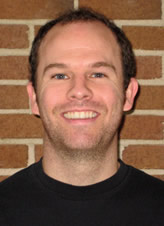
Matt Judson, Ph.D.
Dr. Matt Judson is a postdoctoral fellow in the Philpot laboratory. He earned a B.S. in biology and psychology from Truman State University and a Ph.D. in neuroscience from Vanderbilt University. While at Vanderbilt, under the tutelage of Dr. Pat Levitt, he characterized deficits in forebrain neurons caused by disruptions of Met, the murine orthologue of a common autism risk gene. Dr. Judson’s primary research goal in the Philpot laboratory is to refine intersecting genetic and viral vector-based approaches directed toward the study of cell-autonomous consequences of maternal UBE3A loss.

Ian King, Ph.D.
Dr. Ian King is a postdoctoral fellow in Dr. Mark Zylka's lab. He earned his Ph.D. from Harvard Medical School, and trained as postdoctoral fellow in molecular neuroscience with Dr. Ulrike Heberlein at the University of California, San Francisco before joining Dr. Zylka's lab in 2010. He is the recipient of the 2011 Joseph Wagstaff postdoctoral fellowship for Angelman Syndrome research from the Angelman Syndrome Foundation. Ian's current research focuses on the mechanism of action of candidate drugs for treating Angelman Syndrome.

Hyeong-Min Lee, Ph.D.
Dr. Hyeong-Min (HM) Lee is a postdoctoral research associate in the laboratory of Dr. Bryan Roth. He received a Master of Science degree from Korea University with a major in medical biotechnology. He earned Ph.D from the Florida State University working in the laboratory of Dr. Choogon Lee, where he studied the roles of casein kinase 1 and protein phosphatase 1 to deliver a wide array of effects on the circadian clock. He is currently performing high content screening to identify and characterize small molecules that can induce the expression of the paternal allele of Ube3a.
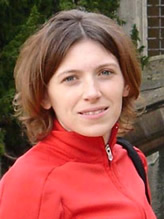
Angela Mabb, Ph.D.
Dr. Angela Mabb is a postdoctoral fellow in the laboratories of Dr. Ben Philpot and Dr. Mark Zylka. Angela received a dual B.S. in Chemisty and Biomolecular Science at Clarkson University. She earned her Ph.D. in 2007 from the University of Wisconsin in Molecular and Cellular Pharmacology and trained as a postdoctoral fellow in Neurobiology with Dr. Michael Ehlers at Duke University before joining UNC. Angela is currently a recipient of the Ruth L. Kirschstein National Research Service Award (NRSA) where her research is focused on identifying the mechanisms of UBE3A imprinting in the brain. Her work employs the use of animal models for Angelman Syndrome along with the development of viral, biochemical, and genetic tools to explore UBE3A imprinting.

Chris Mazzone
Christopher Mazzone is a first year graduate student in the neurobiology doctorate curriculum at the University of North Carolina at Chapel Hill. He received a Bachelor of Science from the University of Connecticut with a major in psychology and a minor in neuroscience. While at the University of Connecticut he worked with Dr. James Chrobak, and following graduation worked with Drs. Richard Mains and Betty Eipper at the University of Connecticut Health Center studying the role of neuropeptides on synaptic plasticity and behavior. He is currently working with Dr. Ben Philpot researching the electrophysiological and plasticity deficits observed in cortical neurons lacking UBE3A expression.
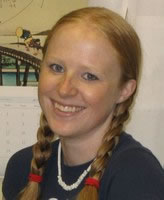
Portia McCoy, Ph.D.
Dr. Portia McCoy is a postdoctoral fellow in the laboratory of Dr. Benjamin Philpot. She received a Bachelor of Science degree from Weber State University with a major in microbiology and a minor in chemistry. For graduate school, she attended the University of Alabama in Birmingham working in the laboratory of Dr. Lori McMahon, where she examined the molecular mechanisms underlying how neuromodulators affect synaptic function in the neocortex. Dr. McCoy is currently using longitudinal 2 photon in vivo imaging to examine the role of UBE3A in the structural plasticity during the critical period for neocortical development.
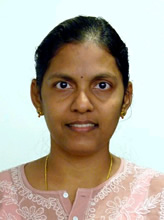
Jaya Miriyala
Jaya Miriyala is a Research Technician in the laboratory of Dr. Benjamin Philpot. She received a Master’s degree from University of Hyderabad, India with a major in Biochemistry. Before joining Dr.Philpot’s lab she worked at Dr.David Yue’s lab, Department of Biomedical Engineering, Johns Hopkins Medical School. She is currently assisting in a project to screen small molecule compounds for the potential as Angelman syndrome therapeutics.

Ben Philpot, Ph.D.
Dr. Ben Philpot earned his Ph.D. in psychobiology from the University of Virginia in 1997. He performed a neuroscience postdoctoral fellowship in the laboratory of Dr. Mark Bear at Brown University and M.I.T., before coming to UNC in 2004. He is currently an Associate Professor in the Department of Cell and Molecular Physiology and a member of the Neuroscience Center, the Neurobiology Curriculum, and the Carolina Institute for Developmental Disabilities (CIDD). Dr. Philpot studies basic mechanisms of cortical plasticity during critical periods of brain development. His recent research has focused on the synaptic basis for Angelman syndrome and other neurodevelopmental disorders. Moreover, his lab is identifying therapeutic compounds for the treatment of Angelman syndrome.
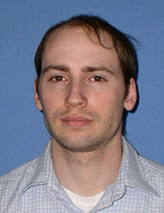
Thorfinn Riday
I received a Bachelor of Arts degree in 2003 upon graduating from Bowdoin College. I joined the Philpot lab in 2008 where I am actively elucidating experience-dependent cortical plasticity deficits in a mouse model of Angelman syndrome. In vitro assays have demonstrated that ube3a-deficient mice exhibit an attenuated ability to strengthen and weaken synaptic connections (LTP/LTD). I am attempting to further characterize this reduction in plasticity using the visual cortex as a model system, recording visually evoked potentials in awake mice.
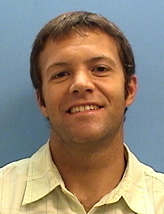
Michael Wallace
Michael Wallace is a graduate student in the Neurobiology Curriculum and in the laboratory of Dr. Ben Philpot. He received his Bachelor of Science degree from Rutgers University with a major in Cell Biology and Neuroscience in 2007. In 2008 he began his work in the Philpot lab investigating the balance of inhibitory and excitatory circuits in the cerebral cortex of the Angelman syndrome mouse model.
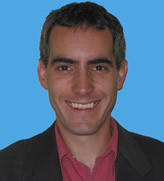
Mark Zylka, Ph.D.
Dr. Mark J. Zylka earned his Ph.D. in Neurobiology from Harvard University in 1999. He performed postdoctoral research in Dr. David Anderson's lab at Caltech before coming to UNC in 2006. He is currently an Associate Professor in the Department of Cell and Molecular Physiology and a member of the UNC Neuroscience Center and the Carolina Institute for Developmental Disabilities (CIDD). Dr. Zylka's research is focused on developing novel therapeutics for pain and Angelman syndrome.

|